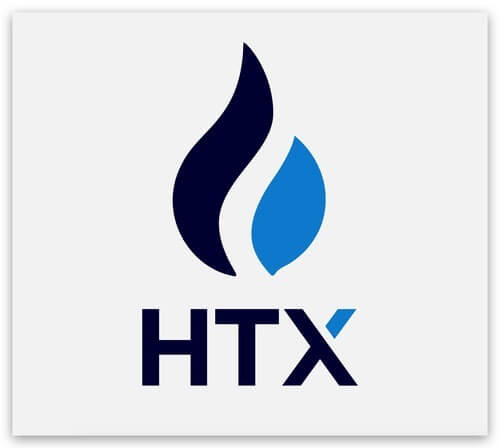They were only two seemingly innocuous words: “investment alternatives.” But when applied to Bitcoin — the seminal cryptocurrency — by an official from the People’s Bank of China in a recent panel discussion, they reverberated like a firecracker.
“A remarkable step for BTC,” Lennix Lai, director of financial markets at OKEx, calls the statement. Michael Peshkam, executive in residence at European business school INSEAD, describes the central banker’s remarks as “a significant shift in the country’s position” on crypto.
To recap: On April 18 at a CNBC event at the Boao Forum for Asia, Li Bo, deputy governor of the PBoC — China’s central bank — said: “We regard Bitcoin and stablecoin as crypto assets. […] These are investment alternatives.” CNBC reporter Arjun Kharpal commented:
“Industry insiders called the comments ‘progressive’ and are watching closely for any regulatory changes made by the People’s Bank of China.”
“Yes, I do see a change in tone” in China, “a softened and more open approach to considering the role of Bitcoin,” Kevin Desouza — professor of business, technology and strategy at Queensland University of Technology Business School — tells Magazine. “I still do not see a full embrace of Bitcoin.”
“This is a very important development,” Daniel Lacalle, chief economist at Tressis SV, tells Magazine — one that involves a “significant change of heart” on the part of China’s government as it “separates itself from its former monetary policy.”
The government is saying, in effect, that it isn’t going to ban or put the brakes on the growth of Bitcoin and other cryptocurrencies, which have been an ever-present risk for both China and other governments, Lacalle suggests.
If so, why now? China is close to rolling out one of the world’s first major central bank digital currencies at scale — sometimes referred to as the Digital Currency Electronic Payment, or digital yuan. “If it wants a digital yuan that works, it can’t ban crypto,” Lacalle says. Rather, it needs to show that its DC/EP is as attractive as a crypto alternative.
Connecting the dots: BTC and DC/EP
What exactly, though, is the connection between Bitcoin and China’s DC/EP? Aren’t they two different things — one an emerging global store of value, like gold, and the other a domestic payment system?
The Chinese yuan, as currently constituted, is used in very few international transactions. “It is underutilized globally because China maintains capital controls,” Lacalle tells Magazine. China has long feared that if it were to drop these controls, its economy would quickly become “dollarized” — i.e., its citizens would send dollars away from China to the United States.
As things stand today, the rollout of a digital yuan would be an international failure, though it might succeed domestically. Outsiders would assume that the Chinese government wants to control it like it does its traditional yuan.
“But if they open the market for crypto in China, they are signalling that capital controls won’t apply to the digital market,” including a digital yuan, Lacalle explains. This is arguably an “intelligent move” on the part of the Chinese government, which like Russia before it now sees benefits in opening its economy to crypto. In fact, cryptocurrencies may eventually — albeit, in a “distant future” — hurt Western fiat currencies, authorities speculate. But in the meantime, a new tolerance with regard to Bitcoin can make its digital currency more viable beyond its borders.
A potential currency?
Peshkam tells Magazine that Li’s statement goes beyond recognizing BTC as just another investment asset, which is scarcely an earth-shaking revelation. China now sees crypto “as a future potential currency in global trade.”
Using Google Trends data from 2014 to the present, Peshkam notes that interest in Bitcoin within China — i.e., among its domestic population — follows a similar pattern as in the U.S., as well as the world at large, as measured by the number of searches for the word “Bitcoin.” Ignoring this growing interest on the part of its populace “might not be economically and financially prudent for the country in the long run, thus the shift” in Chinese policy, opines Peshkam.
China’s DC/EP will probably become “the main means of daily trade from grocery shopping to payment of bills and larger ticket items” domestically, Peshkam says. But it is too early to gauge its international impact, including whether or not it will be a threat to the U.S. dollar as the world’s primary trading currency.
Just in case, continues Peshkam, China would like to have BTC on hand to reduce its dependence on the dollar for global trade. A strong BTC could also similarly weaken the dollar’s hold on China’s regional neighbors, making them more open to using the new digital yuan. “The shift in China’s position seems to be a strategic move to safeguard its future economic dominance should Bitcoin move from ‘investment alternative’ to ‘trading currency alternative,’” says Peshkam.
Who is Li?
Perhaps one is reading too much into a single person’s statement? Li, after all, is just one of seven deputy governors of China’s central bank. Might these remarks on the matter of Bitcoin and cryptocurrencies simply be one banker’s opinion?
No, Lacalle tells Magazine. “That doesn’t happen in China.” Not in forums like these. “When they want to alert the world about some new [financial] policy, the first comment is often from an analyst in a state-owned bank.” Next, typically, is a statement by a central banker. And finally, at a later date, the policy is officially announced, explains Lacalle. This is what happened when China devalued the yuan in 2015, for instance. “It is subtle but efficient.”
China’s central bank is not as independent as some of its Western counterparts, including the U.S. Federal Reserve, another source, who wished to remain anonymous, tells Magazine: “In his [Li’s] place, it would be natural to check whether his statement is in accord with the government view. Or, alternatively, he has been tipped that this is the government view.”
So, Li is simply acting as a government spokesperson? “It can be viewed this way,” says Molly Jane Zuckerman, head of content at CoinMarketCap, in a conversation with Magazine. She adds: “The vice governor of the People’s Bank of China and the former governor of the PBoC both mentioned Bitcoin while explaining the progress of CBDC development” in the recent forum. They considered Bitcoin a special asset and said the government would bring it under supervision and regulation. Earlier, the central bank had called Bitcoin a virtual commodity.
But maybe an “alternative investment” is just an alternative investment — and nothing more?
“It’s hard to be confident, but perhaps PBoC Deputy Governor Li Bo’s intent is simply to say that Bitcoin is a valid alternative investment,” Darrell Duffie, Dean Witter distinguished professor of finance at Stanford Business School, tells Magazine. “China probably remains against the use of Bitcoin as a payment medium, which is a different application.” This would be consistent with Li’s prior remarks, continues Duffie, adding:
“As a payment medium, Bitcoin makes it more difficult for the authorities, in any country, to monitor payments for compliance with laws and regulations, such as anti-money laundering. When used as a payment medium, Bitcoin also makes it somewhat easier to bypass China’s capital controls, which China would not want to see.”
Li may have been saying that Bitcoin is all right as a store of value — i.e., as gold 2.0 — but not as a payments platform. James Barth, finance professor at Auburn University, tells Magazine: “Bitcoin, like gold, might be viewed and allowed as an investment with the ability to serve as an inflation hedge.” He adds that it “makes sense to view Bitcoin as an ‘investment alternative.’ […] This still allows China to impose restrictions by barring financial institutions within its borders from facilitating transactions involving cryptocurrencies.”
The banker also may have simply been describing the current reality. Kevin Werbach, professor of legal studies and business ethics at the Wharton School of the University of Pennsylvania, tells Magazine: “Calling cryptocurrencies ‘investment alternatives’ is a factual statement. It doesn’t necessarily imply anything about whether and how those alternatives would be available to Chinese investors.”
Contrary to what some believe, Werbach says that China has never attempted to thwart Bitcoin and blockchain activities. “China has never been uniformly hostile to cryptocurrencies,” he says, adding: “Chinese authorities shut down initial coin offerings and renminbi-to-crypto exchanges in 2017 because they were concerned about excessive speculation, fraud, and capital flight. There has been no indication of that view changing.”
Meanwhile, China has tolerated a huge crypto mining industry within its borders and has actively promoted blockchain technology “as part of its ‘new infrastructure’ agenda,” adds Werbach. “Many of the world’s largest crypto exchanges, such as Binance, Huobi, and OKcoin, have major ties to China, even if officially they are headquartered elsewhere.” In summary, Werbach tells Magazine:
“My guess is that Li Bo was saying that Bitcoin should be viewed as a speculative investment, not as an alternative currency or payment system. That would be very consistent with China’s approach. I think the crypto community took the wrong message from his remarks.”
Others, however, continue to discern a policy shift behind the banker’s statement. For instance, OKEx’s Lai tells Magazine: “The new statement from the PBOC banker gave a very clear stance to the market that BTC would be considered as an alternative investment tool. We think it’s a remarkable step for BTC and we will likely see BTC regulated with a similar framework as those for other alternative investments.”
Distrust of China
Others were quick to see ulterior motives on China’s part. “China’s latest move softening its position on cryptos should be taken with a healthy dose of skepticism,” Pablo Agnese, lecturer in the department of economy and business organization at UIC Barcelona, tells Magazine. He adds: “China is and has been for long a big black box, and the old adage ‘beware of Greeks bearing gifts’ seems as fitting as ever.”
But Bitcoin may be getting too big to ignore, even for China, suggests Agnese — especially considering it has a market cap that recently surpassed the $1 trillion mark. “China will still try to ride the crypto wave just to undermine the power of the USD in international trade transactions” — which accounts for roughly 60% of foreign exchange reserves — “as there is a trade war still going strong.” As for China’s own CBDC project, Agnese comments:
“Cryptos at large, and BTC in particular, have precisely come to challenge the financial status quo, not only by introducing much needed competition, but also by exposing its long-standing weaknesses.”
Yu Xiong, associate dean international at Surrey University and chair of business analytics at Surrey Business School, tells Magazine that the statement by Li only meant that China was starting to pay more attention to cryptocurrencies — with the intent of regulating them. “This will not mean China will play a softer position toward cryptocurrencies. China will only become soft when the government can really monitor the transactions and cash flows. […] This will not happen in the foreseeable future.”
An “asset class that should be regulated”
In sum, the Chinese government has shown little interest until now in regulating Bitcoin — which would be tantamount to acceptance of the cryptocurrency. But last month, a deputy governor of China’s central bank, presumably with the government’s knowledge and approval, signaled that the central bank will not only not block Bitcoin in China but spoke for the first time in positive terms about the digital currency.
“This is extremely significant for both domestic institutional investors and high net worth individuals” looking to invest in “alternative assets such as Bitcoin in the future,” Zuckerman tells Magazine.
Lai adds: “After years of development, I think all major governments and regulators” — now including China — “have recognized BTC as a viable asset class that should be regulated instead of a complete ban.”
There is a growing realization in China that the nation could benefit from a rising crypto sector. The electricity that powers crypto mining, after all, is largely based in China. The Chinese already have a stake, too, in many blockchain-based enterprises. And meanwhile, the nation has an ambitious digital currency project underway, so some softening with regard to BTC may also be tied, as Lacalle posits, “to its desire to have a [globally] functioning digital yuan.”






















